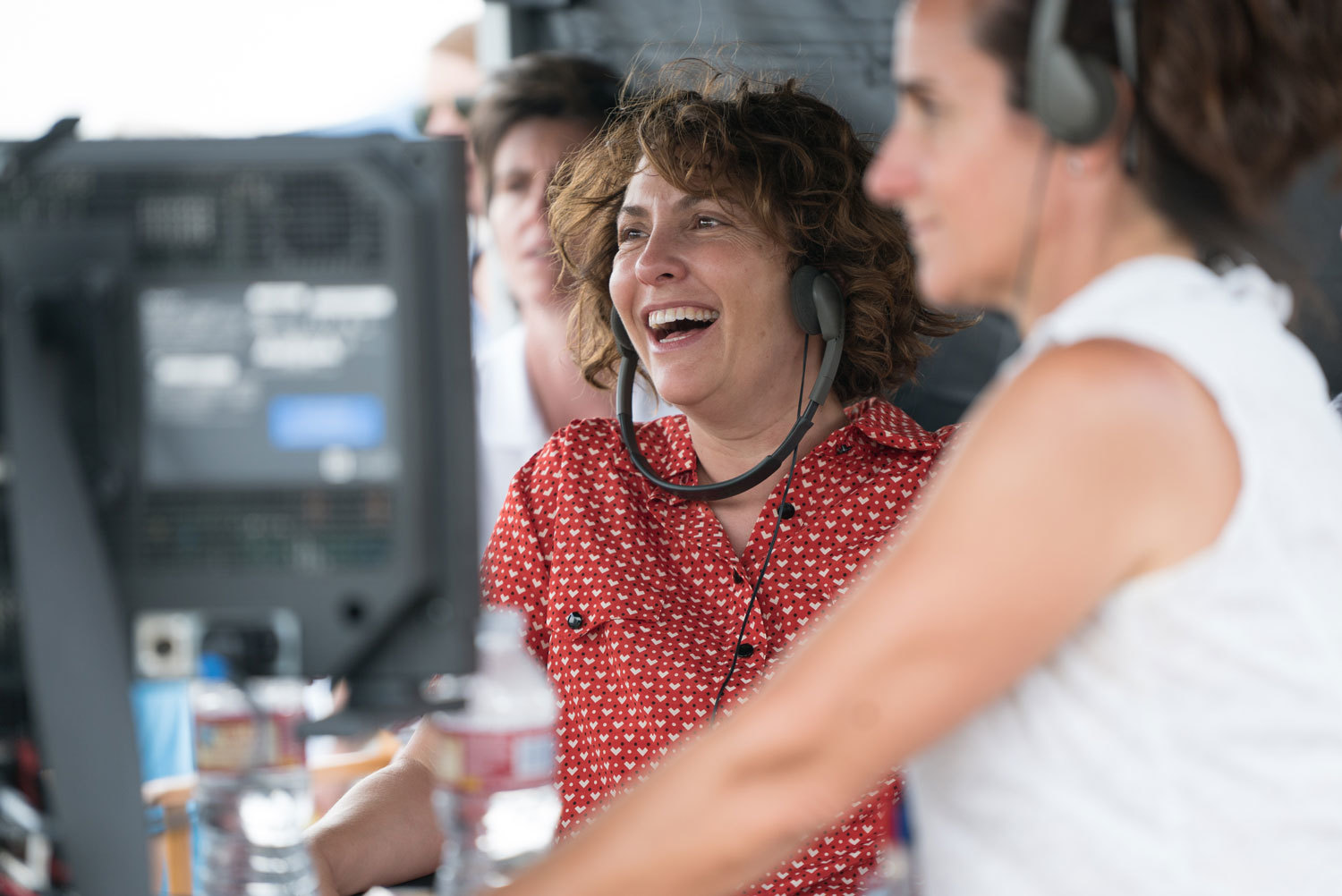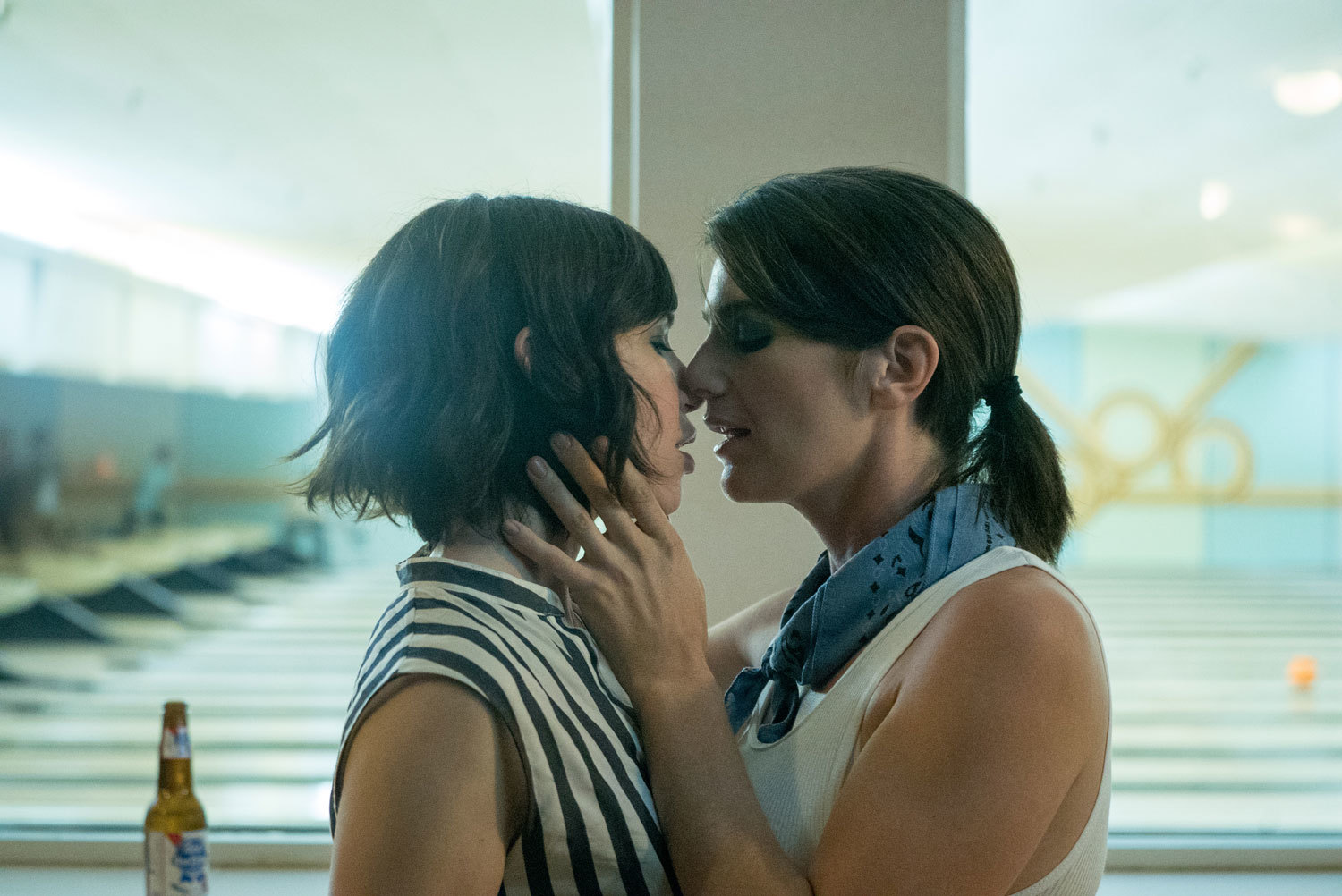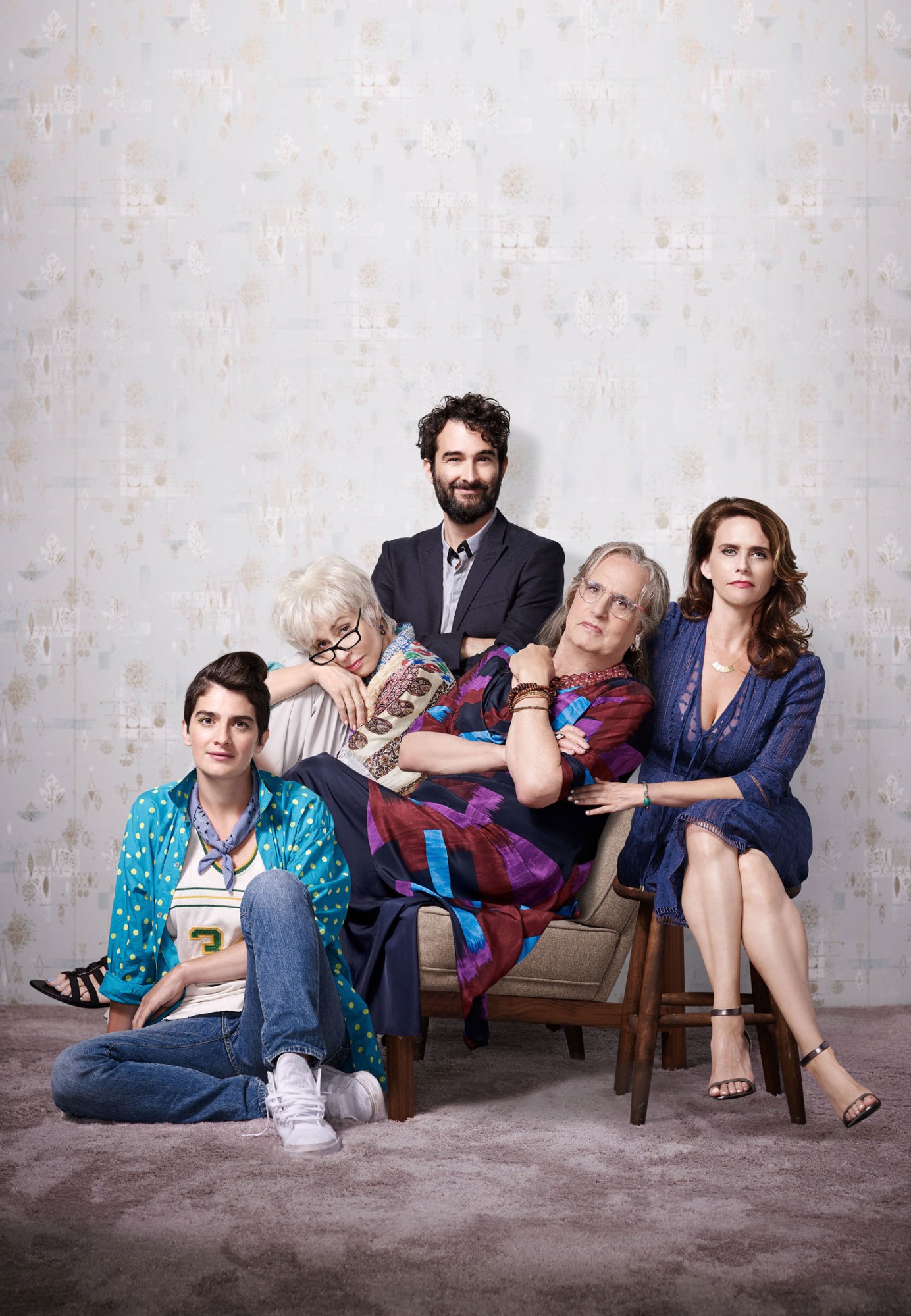Last year, Amazon Prime wasn’t a “thing” until word started spreading about a brilliant trans coming out story centered around a quirky LA clan. Suddenly, people were subscribing to the streaming service just to watch Transparent — to see Jeffrey Tambor’s “Mort” become “Maura” and present her new self to the entire Pfefferman family (who mostly made it about themselves). Writer and director Jill Soloway created the show off the back of her own father’s transition and — after witnessing a new wave of unapologetic drama like Lena Dunham’s Girls — was suddenly emboldened to make something truer to herself. This authenticity certainly paid off: a year down the line and Transparent has five Emmys. It isn’t a niche show, but a TV happening. Jill Soloway is no longer a relatively unknown industry writer, but a Tinseltown heavyweight.
Maura is more withdrawn and flat in season two — perhaps on a come down from coming out — but the rest of the vocally expressive, yet emotionally stunted family make up for it with untold amounts of drama. And as with the first season, there’s great pleasure to be taken from being treated like an intelligent viewer, as well as from the casual Californian intersectionality and the formidable one-liners:
Maura on her sister:
“She’s a filing cabinet with a hairdo.”
On dating a douchebag:
“How did I not see this?”
“You had your foggy fuck goggles on too tight.”
On starting to become a lesbian:
“I’ve realized I can’t have real emotional intimacy with someone who hasn’t suffered under patriarchy.”
i-D spoke with Soloway to talk about the Jewish side of the trans TV show, the “other” media revolution and how Caitlyn Jenner helped her be more experimental.

The first season, in which Maura comes out, feels like more of a celebration. In the second season, Maura seems more withdrawn. It feels like that flatness after you do actually come out?
Wherever you’re going, there you are and now the family is dealing with the aftermath. Everybody is really transitioning. No one in the family can continue to lie once one person starts to tell the truth. So people are being forced to confront their true selves this season, and a lot of it’s painful.
Things are really unravelling.
Yeah, they’re unravelling for sure. It’s good soapy drama. I don’t think you ever want your characters to be satisfied and happy because it’d be boring. We’re always going to be looking to put obstacles in the way of them achieving happiness. There always has to be that conflict and that friction of the self versus the world.
In one scene, the mom thinks she’s killed a fetus. Generally, there’s the sense of the family feeling cursed in the show.
I think that’s a pretty Jewish thing. A lot of people who come from immigrants and that history talk about this fear of the evil eye. I think that really extrapolates down to every single person. A lot of people walk through the world thinking like they’re doing something wrong or they’re going to get in trouble. Anecdotally from friends of mine — especially now with our cell phones — everyone feels like they’re being hunted by their own email box or schedule or time. Everyone has this feeling that there’s something on their shoulder saying, ‘You’re in trouble. You did something wrong.’ Everyone’s looking for that way of feeling like, ‘No, I’m ok. I didn’t do anything wrong. I’m allowed to be happy. I’m allowed to feel joy.’ And I think Judith’s Shelley is the perfect character to show that.
A lot of the press is around the fact that the show deals with trans issues and sexuality, but for me, there aren’t many shows in the UK dealing with Jewish families and culture. Are there many shows in the US that deal with that?
There aren’t any real Jewish shows, really. There are shows that nod a little bit to Jewishness. There was a show you guys had there called Friday Night Dinner, and there’s a show here called The Goldbergs, but from what I’ve heard, they’re not really allowed to talk about being Jewish. It’s not commercial [to do Jewish shows] — or that’s what we were taught as writers — but the fact that it’s so specific and it’s doing well is very exciting.
In fashion and culture, there are so many gay people or Jewish people, but they often hold back from addressing their identity directly, as if it’s a crass thing to do.
Yeah. We live in a world where straight white men are still in power, so anybody who’s not a straight white man is probably doing something other than being themselves, because they’re having to compete for access to that power. So that means not really telling the truth about who you are, not coming out because you don’t want to make straight white men uncomfortable. So I think that’s the promise of this revolution that’s beginning to happen, where people are starting to say, ‘Here I am’ whether they’re black, gay, queer, trans or Jewish. They’re saying, ‘I want to begin to represent how it feels to be me,’ and this is starting to emanate across all areas of the world, not just television.

There’s a really nice, casual intersectionality in the show, which is based in California. Do you feel like things are more free and progressive in California? I do…
I think there is a looseness in California. In New York, when you think of the Jewish family dynamic, it’s what Woody Allen was portraying: urban, neurotic. And I think that’s something that everyone got. I’ve tried to get specific about how California works, or how LA works. There’s the thing I like to call ‘Marine Layer Melancholy.’ It’s actually kind of a British, foggy feeling that you have in lots of LA where the really sunny blue skies and palm trees is the fantasy, but the real LA, or the LA where most people I know live in — particularly the East Side, where Josh, Sarah and Ali live — it’s got a melancholy, it’s got a sadness, it’s got a flavor all of its own. I love being able to portray that. That feels very different. Also LA has so many different communities in it. People in LA understand what it means to go to your mom’s in Marina Del Rey for brunch, or your Dad’s in the Palisades to swim when you might live in Koreatown or Los Feliz.
I love seeing the different sides of the city, from when Ali is doing bong rips in the hot tub at the lecturer’s house through to record label parties in glitzy villas.
It’s so fun to hear you speak about the specificity of something like Leslie’s house, since we’ve been working on it for so long.
Where is the family house meant to be set?
That’s in the Pacific Palisades. In real life it’s actually in Pasadena, but we portray it as being in the Pacific Palisades.
What’s the vibe there?
Palisades is super wealthy, but down to Earth. It’s on the West side, between Beverley Hills and Malibu. People who live in the Palisades like to think they’re a little more authentic, a little more down to Earth. It’s in the hills. It’s kinda quiet and on the downlow. People have real lives there. It’s not quite hippy. People would have bought houses in the Palisades maybe 30 years ago when they might have been a professor at UCLA. It’s the place where there might be great writers, artists and intellectuals and people who bought into that neighborhood many years ago, before it was so wealthy as it is now. You kind of think of the Palisades — for the West side of LA — as the place where people of some more authenticity live.
There’s a strand from 1930s Berlin in the new season. Is that linked to this idea of epigenetics and the idea of inherited trauma?
Yes, it’s all going to explode!
Can you talk about the language in the show? It’s a very specific way of talking, with therapy and academic speech seeping into conversation. It feels very particular to California.
Interesting. I think maybe that’s just a way that people in my world talk. I probably didn’t notice it as language. I know Ali talks a lot about academic ideas conversationally. The family also has their own language, where they speak a certain way to each other.
The “bathy time” sex scene must be one of the most real and intense I’ve ever seen.
Yeah, when I watch that show with audiences, I can feel them thinking, ‘OK, well they’re going to cut away now… they’re certainly not going to stay with this until the end…’ And we’re like, ‘No, we’re going to stick with this all the way through! We’re not going anywhere!’ That was always the intention with that scene. Luckily I have these amazing artists, Jeffrey and Judith, who are willing to sacrifice any level of wanting to protect themselves. They are so vulnerable — particularly Judith — in allowing this moment to unfold onscreen, which as far as I know, has never been seen before on a television show.
The show doesn’t just have one token gay or trans character. Were you keen to have a good number in the show?
When you think about it, everyone on the show is queer, except for Josh now. Maura and Shelley are now lesbians, Sarah is questioning whether she’s gay or bi and she’s queer in terms of her relationship to kink, Ali is definitely queer now. So Josh is the only one out of five in the family who’s straight.

California feels more advanced when it comes to gender and sexual fluidity.
Didn’t you guys invent gender fluidity with Monty Python? I think there’s a big evolution happening and queerness is a part of it, the internet is a part of it. People are able to see people like themselves on the internet and not feel alone. They can link arms with other people who are coming out. I think the internet and YouTube has been good for young people. I think someone told me that 10% of middle schoolers are non-conforming or gender queer. Anecdotally, a lot of young people between 11 and 14 are just starting off being queer or gender queer. They don’t want labels and aren’t putting limits on who they’re attracted to or how they present. And they don’t feel like if they make a choice about who they’re attracted to or how they present that they’re making that choice for the rest of their lives. It might be for this day, or this month.
How do you feel the perception of the show has changed since Caitlyn Jenner’s coming out?
It’s been great actually. We’re all allies for each other: Caitlyn, Laverne Cox, Janet Mock. I’ve had some great conversations with Cailtyn about how watching the show allowed her to see a family where the patriarch transitioned and everybody survived. It’s fun to think about what I have in common with Kylie and Kendall Jenner! Caitlyn coming out really gave the trans 101 experience to the world. Even watching Diane Sawyer and all the questions that were answered let me know that we would be freed up to take more artistic chances and make the show more about creative risks than necessarily trying to catch audiences up with the trans experience.
